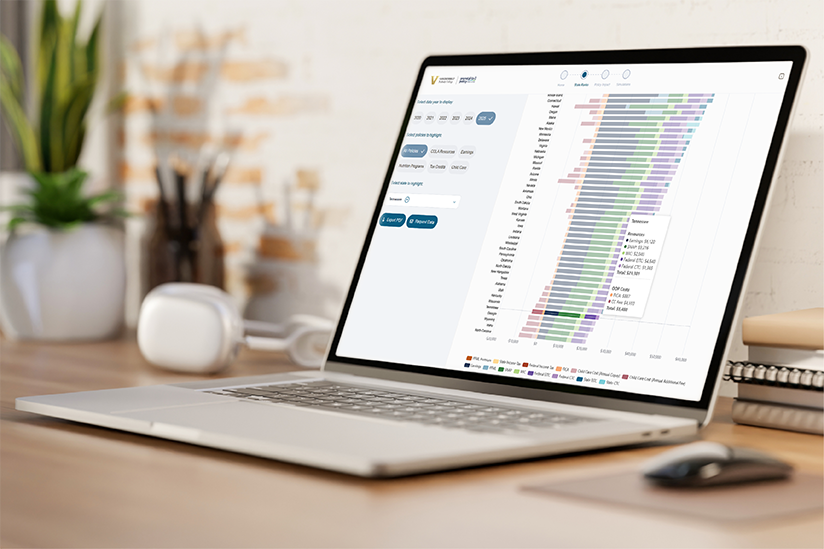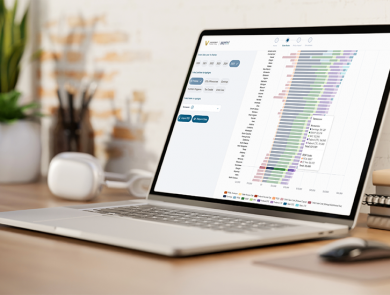Explore a series of in-depth history reports alongside a chronological timeline, highlighting major points of inequitable social policy development and the ongoing effects on communities today.
Explore where states stand, track progress on proven policies, and identify opportunities to strengthen early childhood systems.
The interactive Policy Impact Calculator shows how state policy choices affect resources for families with young children. Compare states, track trends, and simulate outcomes.
No two states govern early childhood the same way. Explore a state-by-state look at early childhood governance, showing how programs are administered and which agencies oversee them.
The interactive Policy Impact Calculator shows how state policy choices affect resources for families with young children. Compare states, track trends, and simulate outcomes.
How do you know if a state policy truly improves outcomes for infants, toddlers, and their families? We reviewed thousands of research studies for you.
We conduct original research—including program evaluation, policy analyses, benefit-cost analyses, and mixed methods studies—to build the evidence.
To support lawmakers and advocates, we offer research and evaluation, data and analyses, presentations, testimony, agenda development, and more.
We aim to accelerate states’ implementation of evidence-based policies that help all children thrive from the start.
Who We Are
We are a nonpartisan research center at Vanderbilt University. We focus on the rigorous evidence connecting brain science with state policies and programs.
What We Do
We inform lawmakers, agencies, advocates, and academics about policies to help families thrive–while growing states’ health, safety, and prosperity.
Why prenatal to 3?
The first three years of life have a powerful impact on the future wellbeing of every person. Families can benefit from a strong early childhood system of care.
The Latest
Tracing policy decisions from early America to today, the reports reveal how long-standing choices continue to shape access and outcomes for families The Prenatal-to-3 Policy Impact Center at Vanderbilt University published the first installment in
Osborne will lead the nation’s premier public policy research association, shaping its 2026 Fall Research Conference and advancing excellence in policy analysis and management Dr. Cynthia Osborne, professor of early childhood education and policy at Vanderbilt University’s
In North Texas, child care providers already serving subsidized families are willing to serve more; yet, thousands of families remain waitlisted. Download the brief Child care is one of the highest expenses families with young
Funding renewals from major philanthropic organizations will strengthen operations and research efforts aimed at improving outcomes for young children and families Press Contact: Sydne Lewis, 615-343-9946, sydne.lewis@vanderbilt.edu The Prenatal-to-3 Policy Impact Center at Vanderbilt University’s
With most legislatures adjourned for the year, we recap the 2025 action on state policies to support children and families. So far this year, lawmakers throughout the country debated—and many passed—legislation that aligns with four key components of the prenatal-to-3 system of care.
Community-based doulas are trained social service professionals who provide non-clinical emotional, physical, and informational support to expectant parents, starting during pregnancy and continuing throughout the postpartum period. When integrated into a larger system of supports














